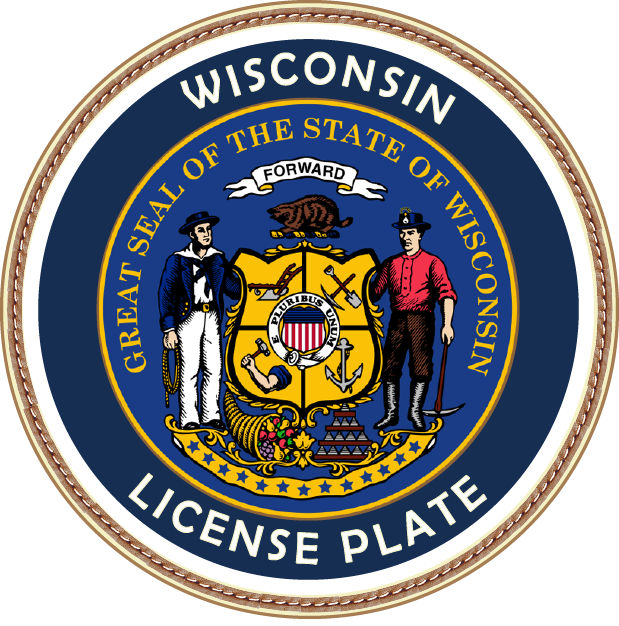Driver Education Requirements in Wisconsin
Getting the right education is one of the most important steps toward becoming a safe and responsible driver in Wisconsin. Whether you're just starting out or looking to improve your skills, several programs are available to help you learn how to drive correctly and safely. Driving education not only helps you pass the required tests but also teaches you how to make smart decisions on the road, handle emergencies, and protect yourself and others while driving.
Driver Education for Teen Drivers
If you're under 18, Wisconsin law requires that you complete a driver education course before you can get your probationary driver's license. This comprehensive program is designed to build foundational driving skills and knowledge that will serve you throughout your driving career.
Core Program Requirements
The state-mandated driver education course includes three essential components. Students must complete 30 hours of classroom instruction where they learn traffic laws, safe driving techniques, road signs and signals, right-of-way rules, and how to handle different road situations including adverse weather conditions. The program also requires 6 hours of behind-the-wheel instruction with a licensed driving instructor who will guide students through practical skills like parallel parking, highway merging, city driving, and emergency maneuvers. Additionally, students spend 6 hours observing another student driver to see how driving skills are applied in real situations and learn from others' mistakes and successes.
Where to Take Driver Education
- Public High Schools: Many Wisconsin high schools offer driver education as part of their curriculum, typically during summer sessions or as an elective course. Contact your school's guidance counselor for details.
- Private Driving Schools: State-approved private driving schools offer more flexible scheduling and individualized attention.
- Online Classroom Portions: Some approved programs now offer the 30-hour classroom component online, though behind-the-wheel training must still be done in person.
Timing and Prerequisites
You must complete driver education before applying for your instruction permit if you're under 18. The course can typically be started at age 15, and you'll receive a certificate of completion required when applying for your permit and later your probationary license.
For a comprehensive list of approved programs and schools in your area, visit: Driver Training Schools - Wisconsin DMV.
Adult Driver Education Options
While adults over 18 aren't required to complete formal driver education, many choose to take lessons to build confidence or refresh their skills, especially if they're new to driving or returning after a long break.
Adult Driving Schools
Adult driving schools offer several programs that can be customized to individual needs. Basic lessons serve first-time adult drivers, while refresher courses help those who haven't driven in years regain their confidence. Specialized training is available for Wisconsin's challenging weather and highway conditions.
Self-Study Resources
Adults can also prepare using Wisconsin's official driver handbook, online practice tests, and educational videos available through the Wisconsin DMV website.
Defensive Driving Courses
Defensive driving courses are valuable for both new and experienced drivers, focusing on advanced safety techniques and hazard recognition. These programs help you anticipate and avoid road hazards such as distracted drivers, poor weather conditions, and high-traffic areas.
Drivers often take defensive driving courses to satisfy court requirements, reduce points on their record (up to 3 in Wisconsin), or qualify for insurance discounts. Courses are available online, in person, and as hybrids combining both.
Motorcycle Safety Training
Planning to ride a motorcycle in Wisconsin? Enrolling in a motorcycle safety course is not just recommended—it’s often required and can significantly improve your safety on the road.
The Wisconsin Motorcycle Safety Program covers inspection, basic controls, riding skills, emergency maneuvers, and crash avoidance. Successful completion allows you to skip the DMV skills test and may earn insurance discounts.
Commercial Driver License (CDL) Training
If you’re interested in driving trucks, buses, or delivery vehicles, you’ll need specialized training and a CDL. Wisconsin offers Class A, B, and C programs with instruction in regulations, inspection, maneuvering, safety, and hazardous materials.
Financial Assistance and Resources
Several programs help offset driver education costs—school district funding, workforce grants, veterans benefits, and employer sponsorships. Costs vary by program, from $200 for teen driver education to $7,000 for CDL programs.
Technology and Modern Training Methods
Many Wisconsin schools now include simulator and virtual reality training for hazard recognition, online modules, and mobile apps for practice tests and progress tracking.
Ongoing Education and Skill Development
Continuing education includes advanced and winter driving workshops, senior driver refreshers, and professional development for commercial drivers. Staying informed about new laws and safety technology is key to long-term safety.
Why Comprehensive Driver Education Matters
Driver education goes beyond passing tests—it’s an investment in public safety and personal responsibility. Studies show that drivers who complete education programs have fewer crashes, lower insurance rates, and better hazard awareness.
By investing in quality education, you’re building lifelong skills that protect you, your passengers, and everyone sharing Wisconsin’s roads.
